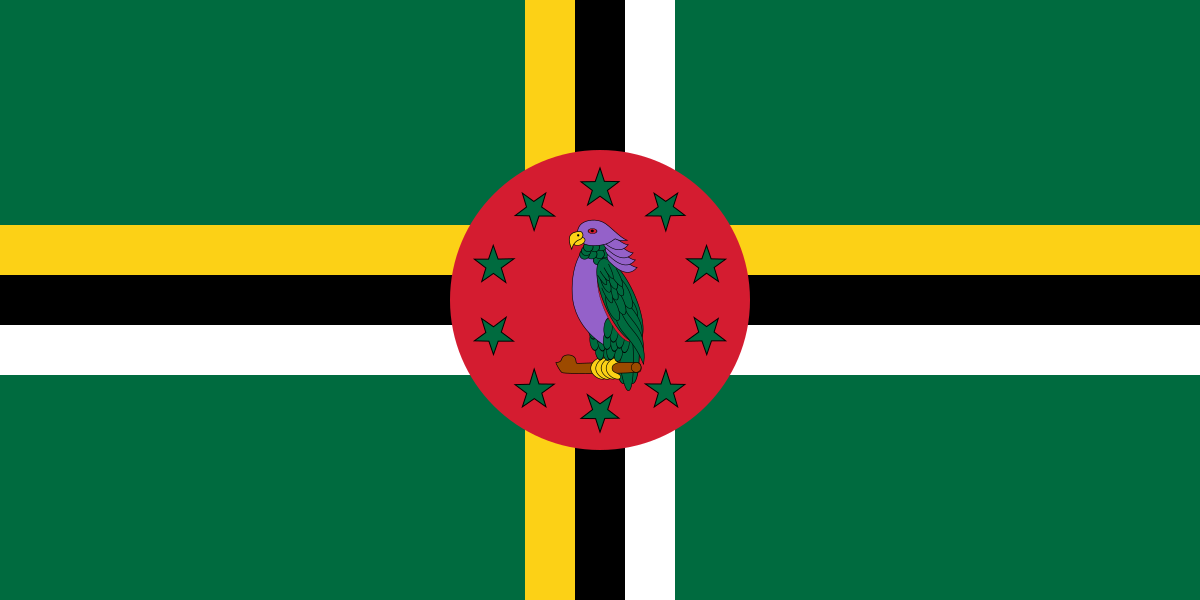Location
Dominica was the last of the Caribbean islands to be colonized by Europeans due chiefly to the fierce resistance of the native Caribs. France ceded possession to Great Britain in 1763, which colonized the island in 1805. In 1980, two years after independence, Dominica's fortunes improved when a corrupt and tyrannical administration was replaced by that of Mary Eugenia CHARLES, the first female prime minister in the Caribbean, who remained in office for 15 years. On 18 September 2017, Hurricane Maria passed over the island causing extensive damage to structures, roads, communications, and the power supply, and largely destroying critical agricultural areas.
Government type: parliamentary republic.
The politics of Dominica takes place in a framework of a parliamentary representative democratic republic, whereby the Prime Minister of Dominica is the head of government, and of a multi-party system. Executive power is exercised by the government. Legislative power is vested in both the government and the House of Assembly. The Judiciary is independent of the executive and the legislature.
Information from the CIA Factbook and Wikipedia article Politics of Dominica
Members:
Resources
Displaying 41 - 45 of 52Administration of Small Estates Act (Cap. 9:06).
This Act provides for the administration of small estates in case of an owner dying intestate or with a will leaving a small estate. "Small estates" means all property, real and personal, of a deceased person which does not exceed a specified value. Persons specified in section 3 may apply to the Registrar to be appointed as administrator. Section 4 provides for nomination by a Judge in case of probate of will of a deceased person. Duties and powers of the Registrar are set out in sections 5 and 6.
Carib Reserve (Amendment) Act 1994 (No. 8 of 1994).
This Act amends the Carib Reserve Act in relation with procedures of election of the Carib Reserve Council.
Amends: Carib Reserve Act (Cap. 25:90). (1990)
Carib Reserve Council (Dissolution) Order (S.R.O. No. 37 of 1994).
This Order, made under the Carib Reserve Act, provides for the dissolution of the Carib Reserve Council, which is responsible for administration of an area of Dominica set apart under this Act as a reserve and known as the “Carib Reserve”. In the period of transition following the dissolution and until new Council is elected, all powers relative to real and personal belonging to or vested in the Council shall vest in the outgoing Chairman and Clerk of Council. These Officers shall also discharge all duties of the Council in the period of transition.
Beach Control Act (Cap. 42:04).
The Act provides for the vesting of the foreshore and the floor of the sea in the State and regulates the use and control of those areas and related matters. The “floor of the sea” means the soil and subsoil of the sea off the coast of Dominica between the low-water mark and so far out to sea as is deemed by law to be within the territorial sea. Use of the foreshore and the floor of the sea requires a licence. Exempted from such obligation are agriculture, rights of fishermen in or over any beach or adjoining land before the Act came into operation and other rights specified in section 10.
Carib Reserve Act (Cap. 25:90).
This Act concerns the administration of an area of Dominica set apart under this Act as a reserve and known as the “Carib Reserve”. The Carib Reserve Council shall be constituted as a body corporate and shall be a local government body with the same powers as a Village Council. The Council may make By-laws for the administration of the area including such matters as drainage and sewerage, pollution control, the keeping of animals and the sale of food. The Authority may also establish public pounds and allot land for purposes of agricultural development.


